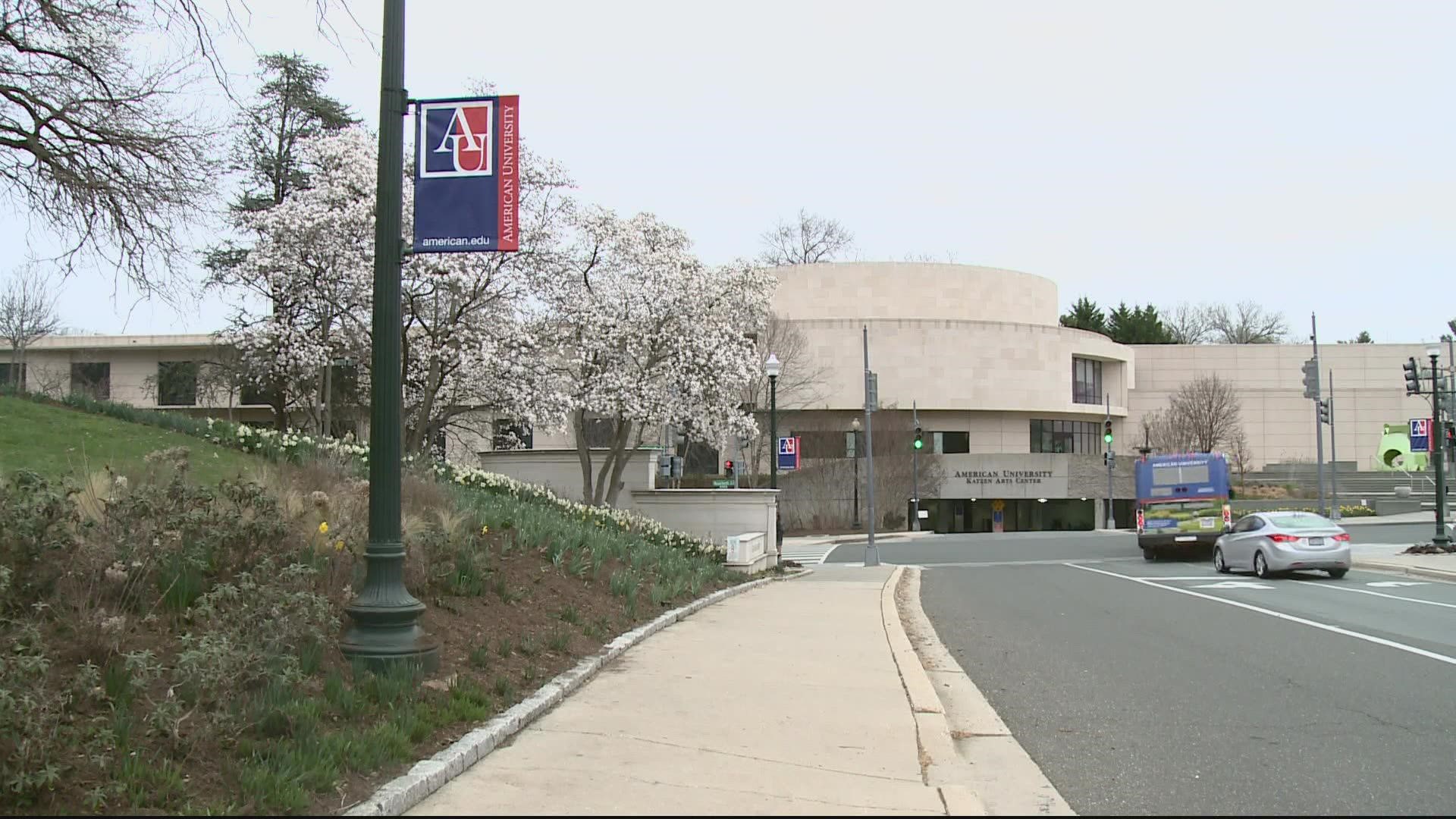WASHINGTON — American University students returned to in-person classes on Monday. Updated COVID-19 protocols for the university require students and staff to wear KN95s, N95, KF94 inside all campus buildings.
The university said the first batch of masks meant to be distributed on campus "did not meet certain standards," according to an American University spokesperson. The mask authenticity was first reported by Skye Witley of American's student newspaper, The Eagle.
Elizabeth McCabe Deal, Assistant Vice President for Community and Internal Communication, explained what happened in an email to WUSA9.
"As we began KN95 mask distribution on campus this week, it was discovered that first batch we received did not meet certain standards. We took immediate action to inspect the masks, confirm with the vendor that the masks did not meet the standards we were promised, and to source new masks that do," Deal said. "While the initial masks may not meet some of those standards, they do provide protection because of their snug fit around the nose and mouth, and they are superior to cloth masks."
Deal said new masks will be available to all AU community members beginning Monday, February 7.
“The health and safety of our community is our priority. As COVID-19 continues to evolve and present new challenges, we are working efficiently to support our community and address concerns," she said.
The Centers for Disease Control and Prevention (CDC) recently updated its guidance on which types of masks offer the most protection in preventing the spread of COVID-19.
Well-fitting respirators, including N95s, that have been approved by the National Institute for Occupational Safety and Health (NIOSH), offer the highest level of protection against COVID-19, according to the CDC. Meanwhile, the federal public health agency says about 60% of the KN95 masks marketed in the U.S. in 2020 and 2021 failed to meet NIOSH standards and were flagged as counterfeit. In fact, U.S. Customs and Border Protection officers have seized millions of counterfeit masks since the start of the pandemic.
N95 masks have a tighter fit to your face than cloth masks and are made with a special material designed to block 95% of harmful particles. The fibers are pressed closer together than in cloth masks and have an electrostatic charge that attracts molecules to stick to the mask rather than passing through.
KN95s and KF94s offer a similar level of protection. A full list of masks that meet an international quality standard is available on the CDC website.

